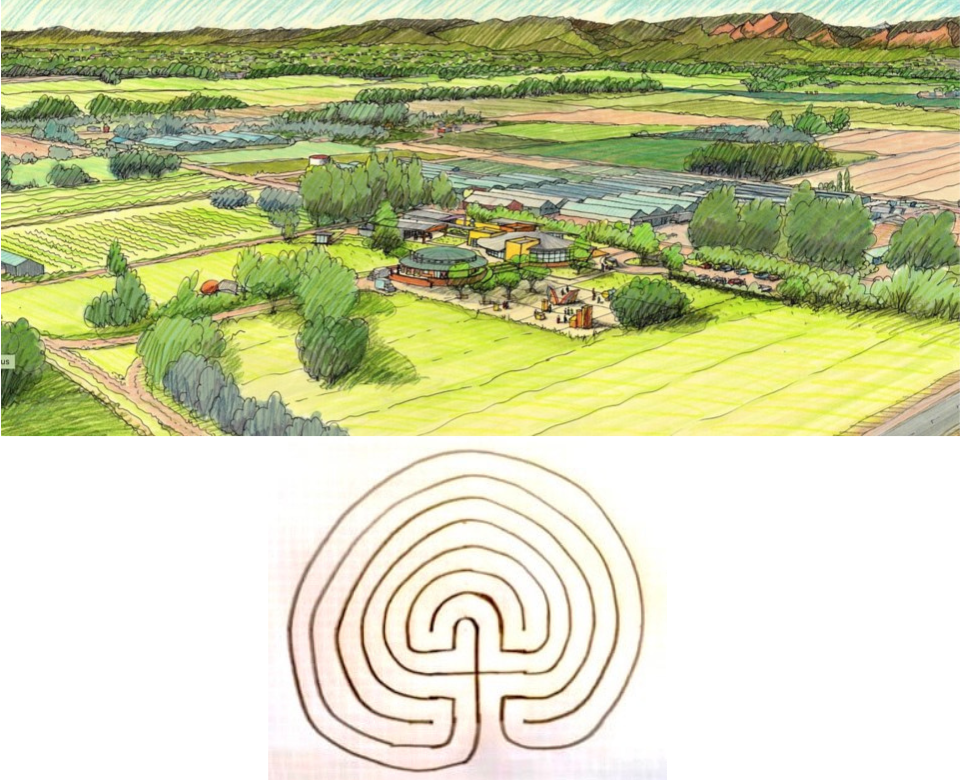For thousands of years, labyrinths have been created around the world, and the East Side Art Institute nonprofit is going to continue that tradition in Boulder County on Earth Day.
At least 20 volunteers are planning to begin the construction of the labyrinth on Saturday, said Nancy Utterback, the institute’s founder.
“This is a very ancient, very traditional labyrinth,” she explained. “We really want this to be a community resource — where art will be our heart and soul and focus.”
The nonprofit East Side Art Institute plans to break ground on its new campus, at 10500 Isabelle Rd., in 2025. The labyrinth will be created on the 14-acre property for the public to enjoy, Utterback said.
“We want the community to feel comfortable to come out here and be in nature, and to take those little respites in the day that help us cope with everything that happens to us,” she said. “As I’ve traveled around, I’ve walked lots of labyrinths, and it’s just a nice little break… they’re in some of the biggest cathedrals in Europe and people walk them every single day — I know I try to walk them wherever I go.”
The public is invited to help create the labyrinth or watch it being built. Volunteers are scheduled to begin the work at 10 a.m. Saturday, and street tacos will be served for lunch. The Sweet Cow Ice Cream truck is set to arrive around 2 p.m.
“Nothing like this happens unless you have the community behind you,” Utterback said.
The labyrinth will be built with crushed rock that’s compliant with the Americans with Disabilities Act, so the paths will be wheelchair and stroller friendly, she said.
“It’s simple, but beautiful. And it’s got some high contrast — we have some colored crusher fines and dark-colored brick, because we’ve been told that if you can see us from Google, more people will know we exist, and they’ll come and walk the labyrinth,” Utterback explained.
The project is expected to take several weeks, and once the weather warms, plants will be added, she said.
Volunteers have already plowed four acres of the property, and the first cover crops are being planted.
“We’re also going to start our regenerative process for the soil so that we can be sequestering more carbon,” Utterback explained.
The nonprofit is also issuing a callout to artists for its new “Acres of Art” project — a series of installations on the property that will go up for three to six months for the public to enjoy.
The institute plans to begin a fundraising campaign next year for its commons building, which is expected to cost between $3.5 and $4 million. The entire campus is expected to cost around $7 million.
Once complete, the institute will host many different art classes, and serve as a community gathering space for yoga, tai chi and music events.



